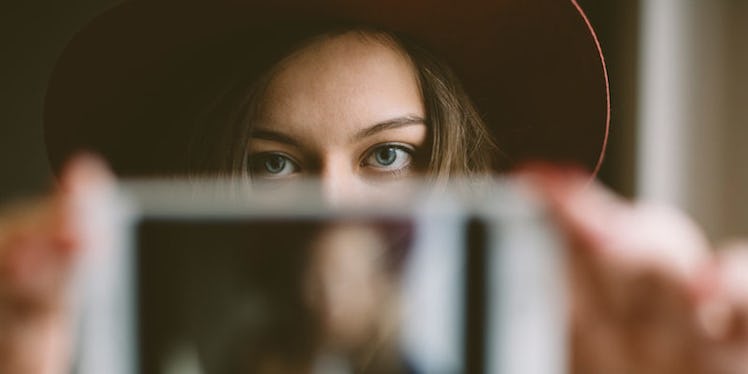New research from the Massachusetts Institute of Technology's Computer Science and Artificial Intelligence Laboratory proves selfie-lovers are right to assume followers want to see their mugs flash across Instagram news feeds.
Researchers devised an algorithm to predict how memorable or forgettable a photo is with near-human-like accuracy. The team members plan to take what they gathered and turn the algorithm into an app, which will subtly tweak users' photos to make them more memorable.
Because all anyone wants in this life is a memorable photo.
In addition to its near-human-level facial memorability, the algorithm uses techniques from deep learning -- like the ones that drive Siri on your iPhone and automatic photo tagging on Facebook -- to sift through massive amounts of data and find patterns on its own.
The team tested the algorithm against human subjects by asking them how memorable they found several never-before-seen photos, and found the algorithm performed nearly the same.
Part of the research included the launch of LaMem, short for Large-scale Image Memorability, a data set (the largest image memorability data set to date, in fact) that allows interested users to test the accuracy of the memorability measurement.
When you upload your photos, the demo scans your image for a few seconds before producing a heat map to show the most memorable aspects of the photo and the photo's overall memorability score.
I went ahead and gave the "MemNet" algorithm a try with some old Instagram photos of my own, and the results varied when compared to the amount of likes they received at the time.
This photo received 111 likes on Instagram.
This photo received 88 likes on Instagram.
This photo received 260 likes on Instagram.
This photo received 109 likes on Instagram.
These photos were also posted at various times of day, which many users believe impacts the photos' overall success rate in terms of longevity on Instagram news and activity feeds.
But, according to the memorability scale, it's subject matter that makes the biggest difference. Compared to landscapes and skylines, selfies and subject-focused images seem to reign supreme.
Although Millennials are sure to love the impact the algorithm will have on their Instagram popularity, researchers envision developing more effective teaching resources, improving social media marketing and advertising content and even creating personalized "health assistants" for individuals who need memory assistance.
For now, instead of asking friends, "Is this Instagram-worthy?" plug the photo in to find out.
Citations: Science Proves It: Selfies Win Over Sunsets on Instagram (Elle), Deep-learning algorithm predicts photos' memorability at “near-human” levels (MIT News)
